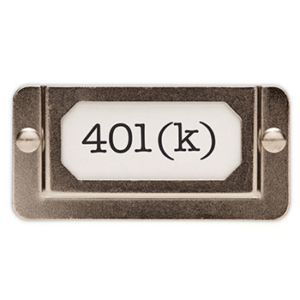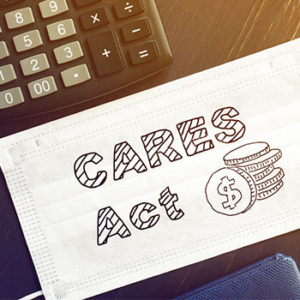 I recognize that some of this information in general does not apply to my clients. However, it is valuable to know as many of you may know someone who is affected.
I recognize that some of this information in general does not apply to my clients. However, it is valuable to know as many of you may know someone who is affected.
The COVID-19 Pandemic has affected so many aspects of our lives. The impact on IRAs and 401(k)s is not an exception. Congress enacted changes that apply only to 2020, while others will have a longer lasting impact. One important change to be aware of is the waiver on the 10% penalty assessed for early withdrawals.
Early Withdrawal Penalty Waiver
 Typically, distributions from an IRA or other retirement plan (401(k) etc.) are subject to a 10% I.R.S. penalty if funds are taken prior to age 59 ½. 401(k)s and other retirement plans may allow age 55 depending on the plan provisions. For those that meet certain criteria, withdrawals up to $100,000 can have an exemption from the 10% penalty. In brief, anyone using this exemption will need to claim diagnosis of the Virus, loss of job or reduction in hours or a business closing. The inability to work because childcare was unavailable can be used for the exemption as well.
Typically, distributions from an IRA or other retirement plan (401(k) etc.) are subject to a 10% I.R.S. penalty if funds are taken prior to age 59 ½. 401(k)s and other retirement plans may allow age 55 depending on the plan provisions. For those that meet certain criteria, withdrawals up to $100,000 can have an exemption from the 10% penalty. In brief, anyone using this exemption will need to claim diagnosis of the Virus, loss of job or reduction in hours or a business closing. The inability to work because childcare was unavailable can be used for the exemption as well.
While exempt from the 10% penalty, keep in mind such withdrawals are still taxable. However, the tax burden may be eased by the ability to spread the income out over three years. Those using this provision will need to consider what their income will likely be in 2020, 2021 and 2022. The prospect of higher federal and state tax rates in the coming year should also be factored in.
Those who made a 401k distribution in 2021 and plan to seek the 10% penalty waiver should inquire with the plan sponsor to see if they adopted the provision. The withdrawal provisions so far only apply to 2020 and must be taken by December 30th of 2020.
Cares Act Impacts on 401(k)s
 Another provision that Congress put into place pertains to anyone borrowing from a 401(k). The typical plan allows participants to borrow 50% of their vested balance in a 401(k) up to $50,000. Vested balance is the money put in by the participant plus any vested employer contribution. Profit sharing contribution, even when vested, may not be allowed to be borrowed from.
Another provision that Congress put into place pertains to anyone borrowing from a 401(k). The typical plan allows participants to borrow 50% of their vested balance in a 401(k) up to $50,000. Vested balance is the money put in by the participant plus any vested employer contribution. Profit sharing contribution, even when vested, may not be allowed to be borrowed from.
The Cares Act increased the loan amount to $100,000 or less if the vested amount is below $100,000. Furthermore, loan repayment can be delayed for up to one year. As is true with penalty free withdrawals, the increased loan must have been approved by plan sponsors. To qualify for a higher loan amount, the participant will need to have been impacted by Covid-19 with the same criteria used for penalty-free withdrawals.
Age Requirements Changed
Required Minimum Distributions (RMD) are also impacted by the Cares Act. RMD’s is the provision that requires distributions from retirement plans (not Roth accounts). At age 70 ½, participants must take a distribution according to distribution tables. The Cares Act allows those who would normally be required to take distribution in 2020 to forgo the distribution without the hefty 50% penalty. Moreover, the RMD age was recently increased to 72. Unfortunately, if you had already turned 70 ½ before the change, you are required to follow the 70 ½ schedule.
I hope that you will pass this information along to anyone who may be impacted. Feel free to have them call me for information. I won’t offer tax advice, but I can help determine if they have issues that need to be brought to the attention of their tax preparer.
January 2021
Information in this material is for general information only and not intended as investment, tax or legal advice. Please consult the appropriate professionals for specific information regarding your individual situation prior to making any financial decision.




